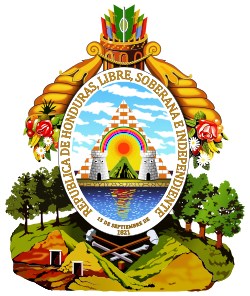 |
|---|
Presidential elections were held in Honduras between 4 and 6 September 1891. The result was a victory for Ponciano Leiva of the Progressive Party. [1]
 |
|---|
Presidential elections were held in Honduras between 4 and 6 September 1891. The result was a victory for Ponciano Leiva of the Progressive Party. [1]
The Liberal Party was established by Policarpo Bonilla in January 1891 in order to oppose president Luis Bográn. At its founding congress, Bonilla was selected as the party's presidential candidate. [1] Bográn subsequently founded the National Party later in January, which consisted of moderate liberals and supporters of former president José María Medina. [1] However, he did not run for re-election. In February the Progressive Party was established, with Ponciano Leiva as its presidential candidate. [1]
During the campaign, Bonilla called for the granting of women's suffrage. [1] However, his campaign was disrupted by the government invoking emergency powers on the pretext of an uprising. [1]
| Candidate | Party | Votes | % | |
|---|---|---|---|---|
| Ponciano Leiva | Progressive Party | 34,362 | 69.19 | |
| Policarpo Bonilla | Liberal Party | 15,300 | 30.81 | |
| Total | 49,662 | 100.00 | ||
| Source: UCSD [1] | ||||
Leiva took office in November after being confirmed by Congress. [1]